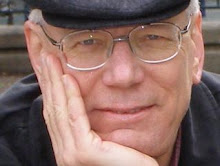
She came through the greeting line after Sunday worship on August 2 at St. Peter's United Methodist Church in Mutare, Zimbabwe. As she extended her hand to greet me, she said unexpectedly, "You are my brother." By that time of my trip, I wasn't surprised by much of anything but this was definitely new information!
I had been blessed by the generosity of my hosts, the Kennedy Masunda family, who had welcomed me into their home and treated me like family. But this woman was not part of their family.
I had been blessed by a growing acquaintance with the people of the Streamview United Methodist Church, having worshiped with them the previous Sunday and having been greeted by several of them at different times in the past week. But this woman was not part of the Streamview congregation.
I had been blessed by a growing acquaitance and friendship with pastors and leaders of the Mutare District, but this woman was not a pastor. To the best of my knowledge, I had never seen her before in my life.
I must have looked at least a little quizzical, because she looked up, pointed, and said, "Same God." Then she looked at me again and repeated her affirmation, "You are my brother."
And of course, she was right. She is my sister. I am her brother. We are all part of the same family, since we all belong to Christ. As it says in Galatians 3:28, "There is no longer Jew or Greek, there is no longer slave or free, there is no longer male and female; for all of you are one in Christ Jesus."
Thanks be to God for family that we meet in the most unexpected places and the most unexpected times!











